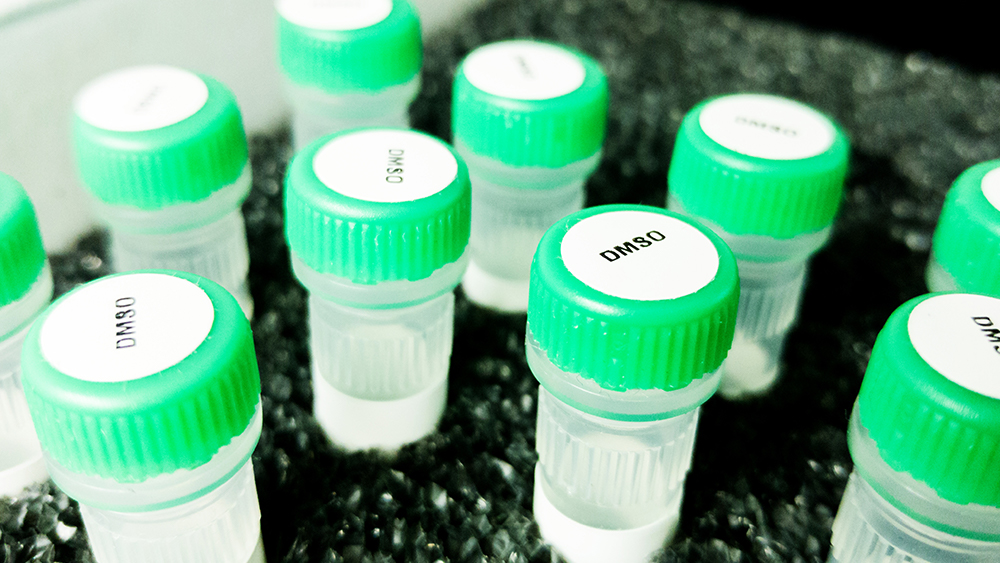IP6: A naturally occurring compound hailed as a potential game-changer in cancer treatment
- IP6, a naturally occurring compound found in the bran of grains like rice and wheat, is being hailed as a potential game-changer in cancer treatment. The book "IP6: Nature's Revolutionary Cancer-Fighter" by AbulKalam M. Shamsuddin explores its scientific promise and potential benefits.
- Dr. Shamsuddin's research demonstrates that IP6 is not just a dietary fiber component but a potent antioxidant. It can inhibit cancer cell growth, reverse damage from free radicals and even treat existing cancers, offering a natural alternative to conventional treatments with fewer side effects.
- IP6 operates through multiple mechanisms: It neutralizes free radicals, interferes with cancer cell signaling pathways and enhances the body's natural killer cell activity. This dual-action approach strengthens the body's defenses while directly targeting cancer cells.
- The book presents robust scientific evidence supporting IP6's effectiveness against various cancers, including colon, breast and liver cancer. Studies show that IP6 can significantly reduce tumor incidence and size and even stop cancer cell growth altogether.
- IP6's potential is further enhanced when combined with inositol, another form of inositol phosphate. This combination yields better results and enhances the body's resistance to cancer. Importantly, IP6 is non-toxic, has no significant adverse effects and does not interfere with mineral absorption, making it a safe option for cancer prevention and treatment.
In the ever-evolving landscape of health and nutrition, a quiet revolution is underway, centered around a compound that has been in people's diets for centuries. This is the story of IP6, a naturally occurring compound found in the bran of grains like rice and wheat and its potential to revolutionize cancer treatment. The book "
IP6: Nature's Revolutionary Cancer-Fighter" by AbulKalam M. Shamsuddin delves into the science and promise of this remarkable substance, offering hope and intrigue in equal measure.
The journey into the world of IP6 begins with a question that has puzzled scientists and health enthusiasts alike: Can something as simple as dietary fiber hold the key to combating one of humanity's deadliest diseases? The answer, as explored by Dr. Shamsuddin, is a resounding yes. IP6, a form of inositol hexaphosphate, is a potent antioxidant with the unique ability to inhibit cancer cell growth and even reverse the damage caused by free radicals.
Dr. Shamsuddin's research, which forms the backbone of the book, is nothing short of groundbreaking. His experiments, conducted over decades, reveal that IP6 not only prevents cancer but also has the potential to treat existing cancers. This is a significant departure from conventional cancer treatments, which often come with a host of side effects. Imagine a world where cancer could be tackled with a natural, non-toxic substance that does not harm healthy cells.
The compound operates on multiple fronts. Firstly, it acts as a powerful antioxidant, neutralizing free radicals that can damage our DNA and lead to cancer. Secondly, IP6 interferes with the signaling pathways that cancer cells use to grow and multiply. By doing so, it can effectively stop cancer cells in their tracks, forcing them to mature into normal, healthy cells.
One of the most compelling aspects of Dr. Shamsuddin's research is the discovery that IP6 can enhance the body's natural killer cell activity. This means that IP6 not only targets cancer cells directly but also strengthens the body's own defenses, providing a dual-action approach to cancer prevention and treatment. As Dr. Shamsuddin himself states, "IP6 is not just a fighter; it's a strategist, working with the body's
natural systems to combat cancer."
The book is filled with detailed experiments and studies that demonstrate its efficacy against various types of cancer, including colon, breast and liver cancer. For instance, in one study, rats fed with IP6 showed a significant reduction in tumor incidence and size. In another study, human liver cancer cells exposed to IP6 stopped growing altogether.
But perhaps the most exciting finding is the potential for IP6 to work synergistically with other treatments. Dr. Shamsuddin discovered that combining IP6 with inositol, another form of inositol phosphate, yielded even better results. This combination not only reduced tumor incidence but also enhanced the body's resistance to cancer.
Safety is always a concern when it comes to new treatments, but studies have shown that IP6 is non-toxic and does not have any significant adverse effects. In fact, it has been used in diagnostic radiology without any negative consequences. Moreover, contrary to previous beliefs, IP6 does not interfere with mineral absorption; instead, it helps normalize mineral levels in the body.
The implications of these findings are profound. IP6 could be a valuable addition to our diets, particularly for those at high risk of cancer. The prospect of preventing cancer by simply incorporating IP6-rich foods into our meals or taking it as a supplement is tantalizing. As Dr. Shamsuddin puts it, "This is not just about treating cancer; it's about changing the way we think about health and nutrition."
In conclusion, "IP6: Nature's Revolutionary Cancer-Fighter" is a must-read for anyone interested in the latest advancements in cancer prevention and treatment. It is a testament to the power of natural compounds and the potential they hold for transforming our approach to health. Whether you are a health enthusiast, a science geek, or someone looking for new ways to
protect yourself against cancer, this book is a treasure trove of information that could change the way you think about food and health.
Learn more about the book "
IP6: Nature's Revolutionary Cancer-Fighter" by watching the video below.
This video is from the
BrightLearn channel on Brighteon.com.
Sources include:
Brighteon.ai
Brighteon.com
 Parler
Parler Gab
Gab










